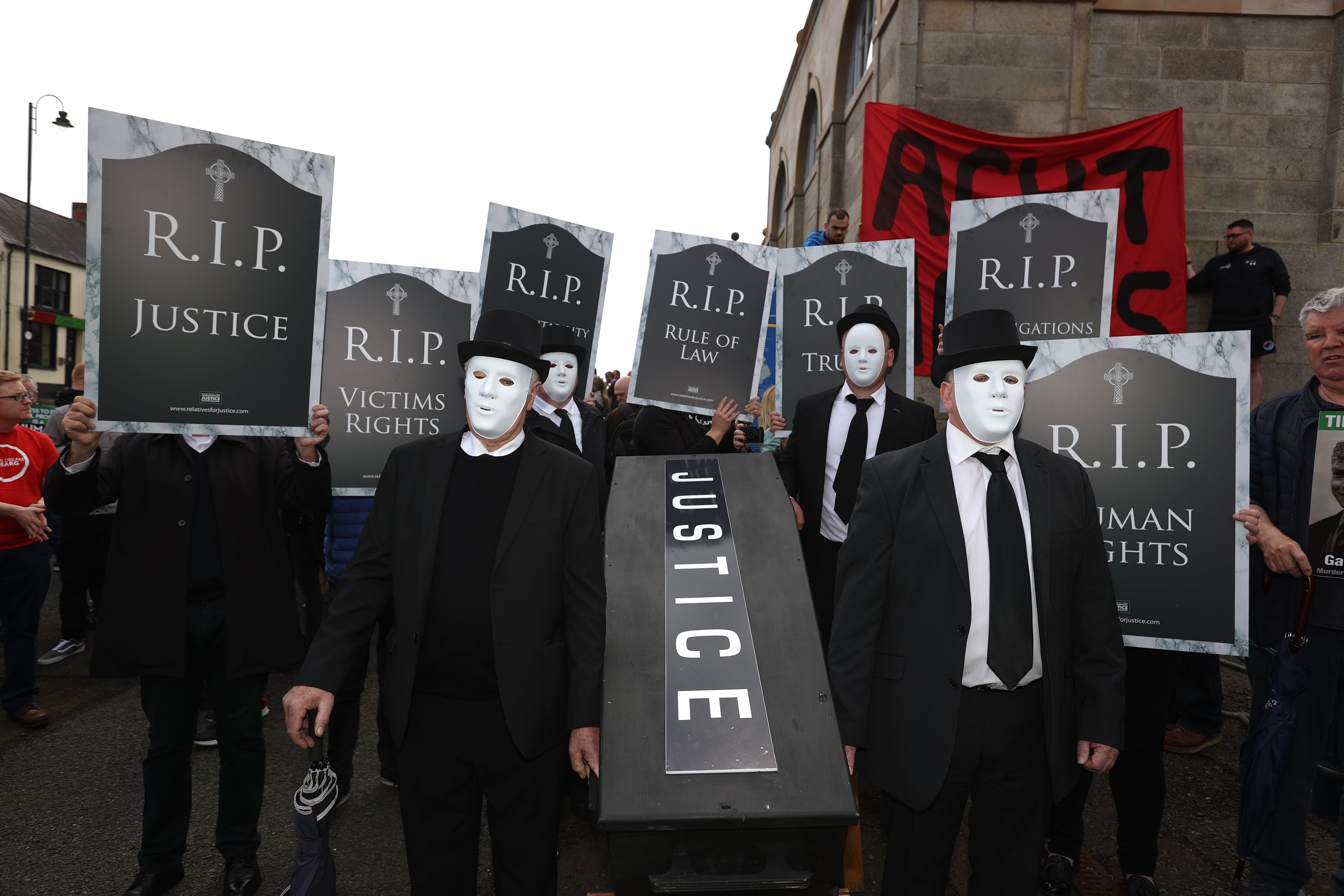Proposed legacy Bill may not be human rights compliant, warns commissioner
The legislation has already cleared the House of Commons and heads to the House of Lords in the autumn.

Your support helps us to tell the story
From reproductive rights to climate change to Big Tech, The Independent is on the ground when the story is developing. Whether it's investigating the financials of Elon Musk's pro-Trump PAC or producing our latest documentary, 'The A Word', which shines a light on the American women fighting for reproductive rights, we know how important it is to parse out the facts from the messaging.
At such a critical moment in US history, we need reporters on the ground. Your donation allows us to keep sending journalists to speak to both sides of the story.
The Independent is trusted by Americans across the entire political spectrum. And unlike many other quality news outlets, we choose not to lock Americans out of our reporting and analysis with paywalls. We believe quality journalism should be available to everyone, paid for by those who can afford it.
Your support makes all the difference.Controversial Government legislation to deal with the legacy of Northern Ireland’s Troubles “runs a very significant risk” of being ruled not compliant with human rights obligations, according to a submission to the Council of Europe.
Dunja Mijatovic is the Commissioner for Human Rights at the council and recently visited Belfast where she met with groups of stakeholders about the Northern Ireland Troubles (Legacy and Reconciliation) Bill. She has also held meetings with Government ministers.
In a written submission to the 46-member council, she said there is “minimal support” for the proposed legislation in Northern Ireland.
The Bill has already cleared the House of Commons and heads to the House of Lords in the autumn.
It would also fail to deliver on the Government’s wish to 'draw a line' under the legacy of the Troubles
It proposes a form of amnesty for perpetrators of Troubles crimes in exchange for co-operation with a new truth body, and would also end inquests and civil proceedings related to the conflict.
The Bill has been opposed by political parties and victims groups in Northern Ireland, as well as by the Irish government.
Ms Mijatovic’s submission raises concerns that a proposed new “review mechanism” for legacy cases would be unable to meet the requirement for independent and effective investigations of deaths under Article 2 of the European Convention on Human Rights.
Her submission stated: “The commissioner is of the opinion that, by introducing the Bill, the UK Government has embarked on a course of action that runs a very significant risk of eventually being found by domestic courts and/or the European Court of Human Rights not to be compliant with the Convention.
“It would also fail to deliver on the Government’s wish to ‘draw a line’ under the legacy of the Troubles and, most importantly, would continue to deprive victims and families from the full enjoyment of their rights under the Convention.”
Her submission continued: “On the basis of her visit and further monitoring, the commissioner concludes that there is minimal support for, and public confidence in, the Bill and in its mechanisms in Northern Ireland.
“The commissioner notes that this has further been damaged by the perception that the main purpose of the Bill is to shield (military) veterans from investigations and prosecutions, rather than achieving reconciliation.
“This, according to the commissioner, is a very understandable perception, given the repeated statements by Government officials emphasising the need to protect veterans from vexatious claims or from otherwise being pursued through criminal law measures.
“The commissioner notes that, while there will never be complete agreement on any approach, in this case, the baseline of trust is so low that it is difficult to see how the mechanisms in the Bill will come to garner more confidence during its implementation.”
Recently, Northern Ireland Secretary of State Shailesh Vara said the controversial bill was still open to negotiations following a meeting between Northern Ireland Office minister Lord Caine held talks with victims’ groups.